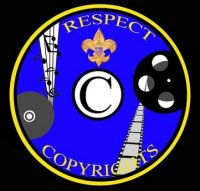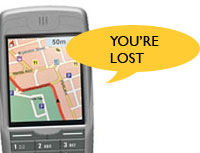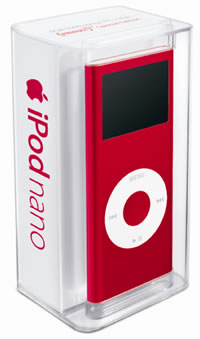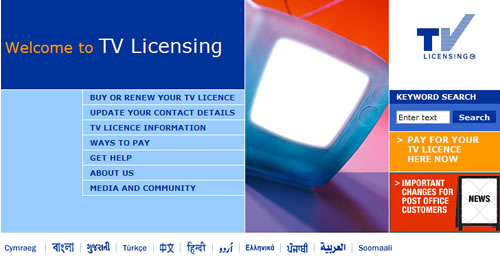 AMD, the second largest microprocessor manufacturer has complete the purchase of graphics, chipset and CE specialist ATi Technologies in a deal worth around $5.4Bn.
AMD, the second largest microprocessor manufacturer has complete the purchase of graphics, chipset and CE specialist ATi Technologies in a deal worth around $5.4Bn.
From day one they’re talking a new game – “Fusion.” The integration of the central processing unit (CPU) and graphics processing unit (GPU) at the silicon level. Interestingly they claim this will give them a significantly increase in performance-per-watt – benefitting both portable devices, by giving them longer results from batteries, and more efficiencies for mains-powered computers, vital in the world we’re entering with a need to keep an eye on power consumption. The Fusion products are expected late 2008/early 2009.
Phil Hester, AMD senior vice president and chief technology officer summed it up, “With the anticipated launch of Windows Vista, robust 3D graphics, digital media and device convergence are driving the need for greater performance, graphics capabilities, and battery life.”
 The capabilities of graphics processors have been gathering pace over the recent years to the point where they come close to rivaling the main processor themselves.
The capabilities of graphics processors have been gathering pace over the recent years to the point where they come close to rivaling the main processor themselves.
To get hold of ATi, AMD are splashing $4.3Bn in cash and also handing over 58m AMD shares. $2.5 billion of the cash mountain comes courtesy of a term loan from Morgan Stanley Senior Funding. The intention to do the deal was made in July this year.
At the time of the original announcement there was some speculation that ATi rival, nVidia would sell to Intel. This didn’t come to pass, possibly because already has a strong graphics chip division. To minimise the impact of todays deal on nVidia, Mike Hara, Nvidia’s vice president of investor relations, told Reuters, “It reinforces our philosophy that we don’t want to be tied up. I don’t think anything changes. In fact, what we’ve already felt and seen I think gives us the energy to push faster.”
 Coming straight from the you-must-be-having-a-laugh folder, news reaches us that the Los Angeles Scout group is introducing a new merit award — the Respecting Copyright Patch. We kid you not.
Coming straight from the you-must-be-having-a-laugh folder, news reaches us that the Los Angeles Scout group is introducing a new merit award — the Respecting Copyright Patch. We kid you not. Apple has continued to increase the number of iPods they’re selling. Their latest quarterly results show that they grown the 8.11m iPods they sold in the previous quarter to 8.73m this quarter, beyond market expectations. The quarter that is reporting didn’t change or introduce any new iPods.
Apple has continued to increase the number of iPods they’re selling. Their latest quarterly results show that they grown the 8.11m iPods they sold in the previous quarter to 8.73m this quarter, beyond market expectations. The quarter that is reporting didn’t change or introduce any new iPods. Logitech has announced that it is buying Slim Devices for $10m cash plus a possible performance-based payment tied to certain revenue targets. The news came on the same day as their best-ever Q2 sales, which reached $502m.
Logitech has announced that it is buying Slim Devices for $10m cash plus a possible performance-based payment tied to certain revenue targets. The news came on the same day as their best-ever Q2 sales, which reached $502m. Sony and Sky are tying up to show the UK’s first HD advert tonight.
Sony and Sky are tying up to show the UK’s first HD advert tonight. Shot over 10 days and with a crew of 250 people, the paint was mixed on site by 20 people. The clear up took 5 days and 60 people.
Shot over 10 days and with a crew of 250 people, the paint was mixed on site by 20 people. The clear up took 5 days and 60 people. The launch of this first HD ad follows a major marketing agreement between Sky and Sony to promote HD.
The launch of this first HD ad follows a major marketing agreement between Sky and Sony to promote HD. A new survey of over 1,000 early adopters and mobile phone business users discovered little enthusiasm for mobile video but a keen interest in using handsets as navigation aids.
A new survey of over 1,000 early adopters and mobile phone business users discovered little enthusiasm for mobile video but a keen interest in using handsets as navigation aids. Commenting on the low uptake of value-added 3G services, Chamberlain suggested that customers were reluctant to part with their hard-earned just to watch juddery little video clips of “yesterday’s ballgame” on the squinty displays of smartphones.
Commenting on the low uptake of value-added 3G services, Chamberlain suggested that customers were reluctant to part with their hard-earned just to watch juddery little video clips of “yesterday’s ballgame” on the squinty displays of smartphones. If the findings of the In-Stat survey prove to be representative of the population as a whole, it looks like mobile phone carriers are going to have to shuffle around their ranges of phones currently being offered, and give GPS-enabled phones a bigger push (or look to include more mobile navigation apps like Google Maps).
If the findings of the In-Stat survey prove to be representative of the population as a whole, it looks like mobile phone carriers are going to have to shuffle around their ranges of phones currently being offered, and give GPS-enabled phones a bigger push (or look to include more mobile navigation apps like Google Maps). There’s bound to be lots of these stories floating around the Valley, as companies started getting bought for large sums of money. It’s going to be the equivalent of being/claiming to be the fifth Beatle.
There’s bound to be lots of these stories floating around the Valley, as companies started getting bought for large sums of money. It’s going to be the equivalent of being/claiming to be the fifth Beatle. Living what he was building, “Armed with a video camera, Mr. Karim documented much of YouTube’s early life.”
Living what he was building, “Armed with a video camera, Mr. Karim documented much of YouTube’s early life.” The Herald is reporting that the shares in Carphone Warehouse took a bashing on the news that Vodafone is switching away from them, to sell their mobile phone contracts through Phones 4U instead.
The Herald is reporting that the shares in Carphone Warehouse took a bashing on the news that Vodafone is switching away from them, to sell their mobile phone contracts through Phones 4U instead. Carphone has been building up its
Carphone has been building up its  If you haven’t heard of (RED) yet, you certainly will – there’s a ton of celebs involved and it’s going to be all over the media. It was created by Bono and Bobby Shriver, Chairman of DATA and it’s already been on Oprah in the US with Penelope Cruz and Kanye West.
If you haven’t heard of (RED) yet, you certainly will – there’s a ton of celebs involved and it’s going to be all over the media. It was created by Bono and Bobby Shriver, Chairman of DATA and it’s already been on Oprah in the US with Penelope Cruz and Kanye West. Motorola are the “exclusive wireless partner” for (PRODUCT) RED and have two handsets of the red hue. The red MOTOSLVR is exclusive to the UK and the MOTORAZR V3m is only available in the US. The deal with the phones sounds like it’s actually better for (RED) long term depending on the service provider. With Orange, 5% of your monthly phone bill spend will also be donated to (RED).
Motorola are the “exclusive wireless partner” for (PRODUCT) RED and have two handsets of the red hue. The red MOTOSLVR is exclusive to the UK and the MOTORAZR V3m is only available in the US. The deal with the phones sounds like it’s actually better for (RED) long term depending on the service provider. With Orange, 5% of your monthly phone bill spend will also be donated to (RED). BBC Director-General Mark Thompson is back on again trying to justify to the British government why the BBC should be allowed to increase their licence fee above the Retail Price Index (
BBC Director-General Mark Thompson is back on again trying to justify to the British government why the BBC should be allowed to increase their licence fee above the Retail Price Index (